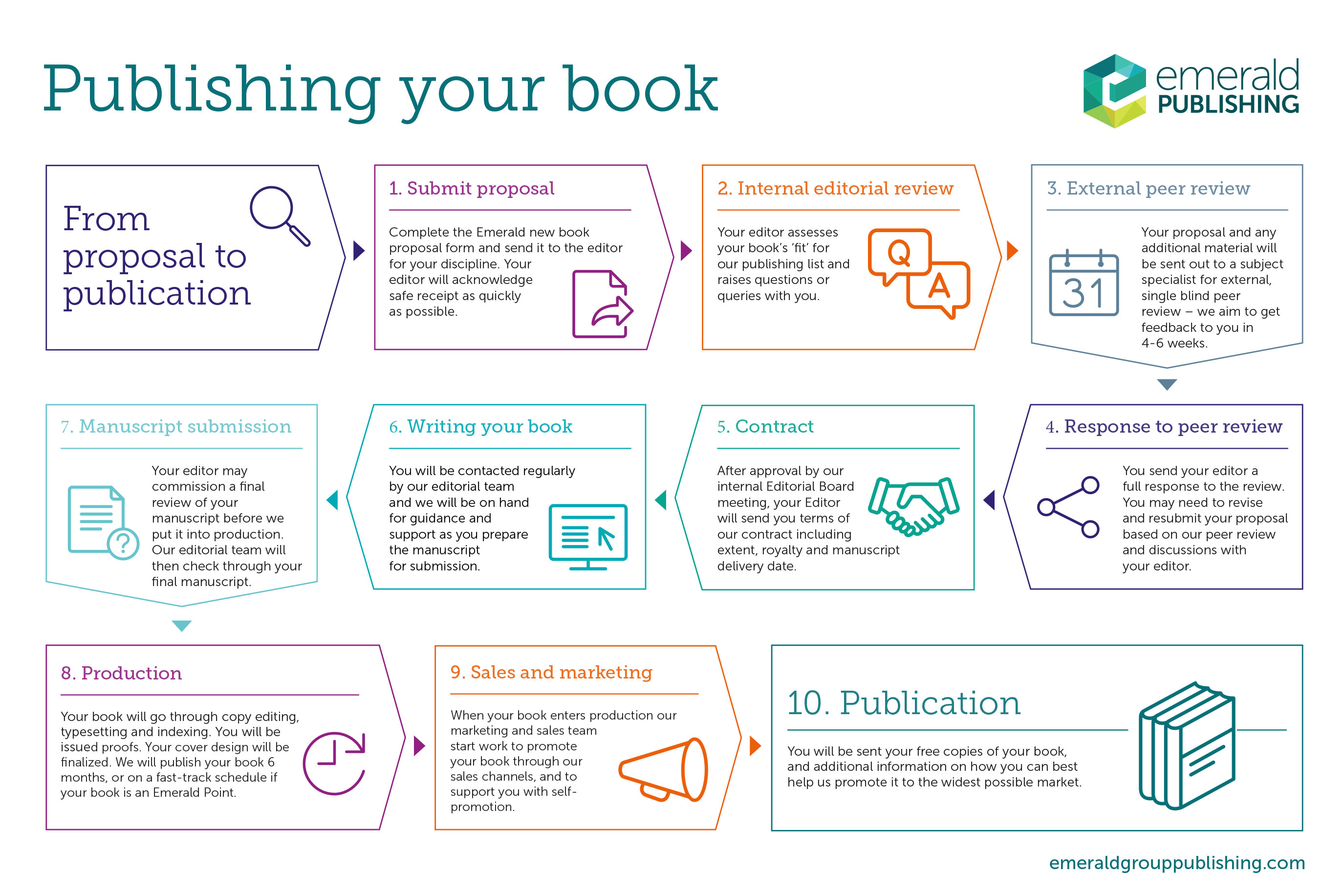
Understand the publishing process
From proposal to publication, learn about the publishing process with Emerald with our helpful infographic. Download and keep your step-by-step guide (PDF).
PDF text
Publishing your book
1. Submit proposal: Complete the Emerald new book proposal form and send it to the editor for your discipline. Your editor will acknowledge safe receipt as quickly as possible.
2. Internal editorial review: Your editor assesses your book’s ‘ft’ for our publishing list and raises questions or queries with you.
3. External peer review: Your proposal and any additional material will be sent out to a subject specialist for external, single blind peer review – we aim to get feedback to you in 4–6 weeks.
4. Response to peer review: You send your editor a full response to the review. You may need to revise and resubmit your proposal based on our peer review and discussions with your editor.
5. Contract: After approval by our internal Editorial Board meeting, your Editor will send you terms of our contract including extent, royalty and manuscript delivery date.
6. Writing your book: You will be contacted regularly by our editorial team and we will be on hand for guidance and support as you prepare the manuscript for submission.
7. Manuscript submission: Your editor may commission a final review of your manuscript before we put it into production. Our editorial team will then check through your final manuscript. From proposal to publication
8. Production: Your book will go through copy editing, typesetting and indexing. You will be issued proofs. Your cover design will be fnalized. We will publish your book 6 months, or on a fast-track schedule if your book is an Emerald Point.
9. Sales and marketing: When your book enters production our marketing and sales team start work to promote your book through our sales channels, and to support you with self- promotion.
10. Publication: You will be sent your free copies of your book, and additional information on how you can best help us promote it to the widest possible market. emeraldgrouppublishing.com

Calls for books
Discover our latest calls for book contributors and book proposals from our extensive book range.

Explore our bookstore
Search our bookstore for all our latest publications in your subject area. View our book series

Engage forum
A place that is informative and rewarding, where we come together and collaborate with industry leaders, about everything in academia. And where you can share your perspectives and experiences with us.


